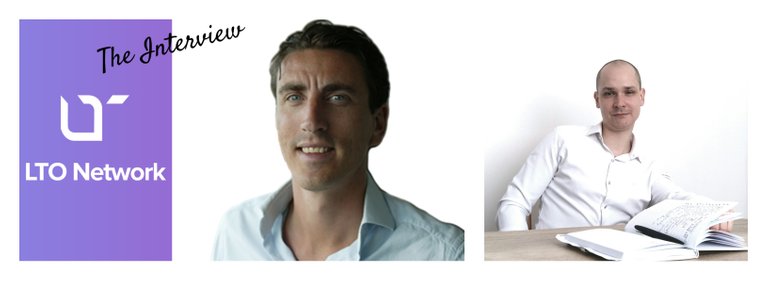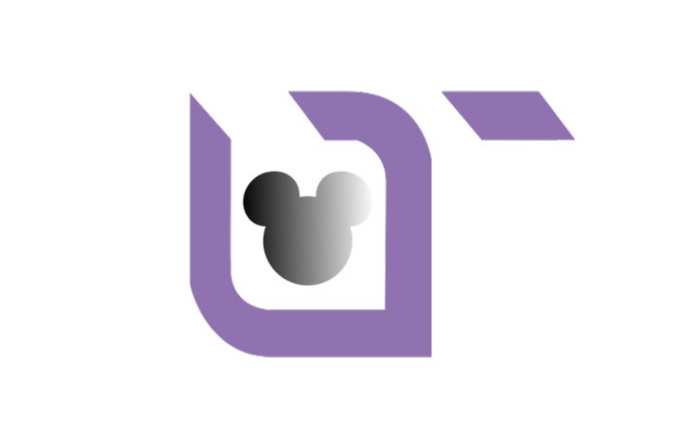LTO Network - Interview with CEO - Rick Schmitz - Vol. II

Part Two
One of the basic elements of LTO Network is the Live contracts. What is the structure and purpose of this element?
Similar to a Smart Contract, a Live Contract provides a dynamic method for defining logic on the blockchain. However, the purpose of a Live Contract is not just to determine the state of a process, but to actively instruct humans and computers about the steps it contains.
In other words, a Live Contract is a workflow. A workflow is a sequence of related steps or processes that are necessary to complete a particular task. Think of it this way: a workflow has rules, where a certain action triggers another action, and so on.
A workflow is essentially the general template of a business process. For example, consider the workflow of a simple lease agreement approval, in which a document gets (1) drafted, (2) approved and (3) signed. A process is the specific instance of this workflow, so, for example, the lease agreement between parties A and B, which was drafted by an employee of B, approved by the CEO of B, and signed by both parties.
A workflow always contains certain logic: the rules mentioned before. Take for example the rule that signing can only come after approval, or that a rejection instead of approval would lead to a re-draft of the agreement.
Workflow + workflow rules = Live Contract
For the nerds under us: What data structure we can find in those Live contracts? Is it a simple JSON?
Yes, correct, it is structured as a simple JSON. You can check 2 workflows in JSON here
What has been your biggest coding challenge with LTO Network so far?
Work towards a shippable beta and then iterate and improve your product. This is the pitfall you see so many times. “The biggest waste of all is building a product that customers refused to use.” I love this phrase of Eric Ries. This is so true. I have experienced it with many projects we did in the companies I was involved in. We threw away so many features and even complete product because it just wasn't what the market was looking for. This is exactly why you need a kick-ass product owner. Developers just love building with new techniques, testing new frameworks and build a Ferrari when the markets have skeds for a car.
Rather launch a beta product which you can test fast and iterate then wait for a Ferrari where there is no demand for.
Are you planning to expand your team and how are you intending to keep knowledge redundancy within LTO team with many specialized employees in the team?
The risk of a brain drain is a big issue for startups. I experienced it once myself in 2016 when a rockstar online marketeer got offered a position at Staples and paid him 3 times his current salary. That's when I realized that for key employees you need to offer something more than just a good salary and nice environment. They must have skin in the game. So that's what we did. As a key employee, you benefit from the upsides of the company. And no-one wants to leave a potential unicorn.
And we are definitely looking for new talent. Software development, UX/UI, sales and account management positions.
There are two main layers. How do they operate and how do you deal with scalability
The private layer is for data sharing, process automation, and collaboration. The public layer, on the other hand, acts as a security settlement layer, like an immutable digital notary for hashes of layer 2 (a distributed hash table, of a sort). This hybrid approach makes LTO Network GDPR and data privacy compliant, as well as extremely scalable.
Check this piece for more info.
What is LTO Network's contribution to evolving and developing blockchain technology as a whole? Those Live Contracts you have mentioned earlier, for example?
Layer 1 is not innovation, it’s just what it is supposed to do. It is an essential piece, and it is needed for both the business and the scalability/security aspects of LTO solutions, but the innovation is in layer-2. We managed to connect something simple yet extremely demanded and utilized the new security paradigm to guarantee that organizations can collaborate with each other securely and efficiently, using their existing legacy systems. As outlined in the visionary paper, we believe that the blockchain adoption will not start with stable coins or something complicated, but by baby steps of providing efficient integration with the tools of the past, and then evolving from there.
Since there is a possibility to stake LTO tokens in nodes which are a fundamental part of the whole ecosystem. Can anyone start a node? What are the requirements? The minimum amount of tokens someone needs to run a node, etc.?
It’s a permissionless public blockchain, so anyone can run a node. The sybil prevention is Fair Leased Proof of Stake for now. This means you can either run a node yourself or “send the voting right” (do not confuse with DPOS) to another node. In the latter case, you would split rewards with the node you work with. THis creates a cool community engagement, where every node is like a distributed community of itself, working on its own engagement and traction.
Are people helping LTO Network significantly by running such (master)nodes?
We do not have masternodes, it’s a permissionless network. Right now it’s Fair Leased Proof of Stake, but Q3/4 we are switching to our own development: Leased Proof of Importance. This will make sure that the network is less centralized, and that there is more focus on actual network users. You can take a look here. And yes, definitely! More nodes and better token distribution imply higher security for the network. Thus we are doing network incentives to encourage more community to spin up a node themselves, and not just least.
What does Future hold for LTO? Where do you see LTO Network in about a year?
Network adoption is key! We are a development toolkit and it must be used!
There are going to be a handful of fabrics that are there to stay that will work together and dominate the blockchain landscape. For decentralized workflows, we believe that we are the strongest player.
Our strategy is to start with low entry blockchain adoption. That is securing data transactions through anchoring on our layer 1. Our target is 15M transactions/month year end 2019.
Next phase will be certificated. Introduction of certificates to check if any action or event is valid or allow to execute something. Think of permits needed for construction, transportation, shipping, ISO, CE, chamber of commerce data, etc). Our target is 5 production ready implementations year end 2019.
When you use certificates on a chain it is a small step to execute decentralized workflows to enable inter-organizational collaboration.
We focus on integrators that implement our tools and offer them an enterprise edition that provides them with plug & play integrations and extra features like Proxy re-encryption, Elastic scaling, and Search & indexing.
New York Minute
I think you could have been born in a decade which allowed you to play and remember the legendary game: Max Payne. New York minute is a particular hardcore playing mode in which you need to take down your enemy every few seconds, or you will be shut down by the game. This brought me a decent idea to use this principle in my interview. Your task here is to answer these questions as spontaneously and using as fewer words as possible.
1. What would you do differently if you could do it all over again?
I would never have started lensdeal.nl. Although it was great learning I would never start something anymore in an industry that I don't understand. We have a saying in Dutch: "Shoemaker stays at your last". That applies to me.
2. How has LTO Network's vision evolved from Day 1 to today?
From a focus on replacing contracting to the facilitation of the execution of the process itself through blockchain technology.
3. What have you learned this year so far that will be game changing in the next year?
That there are a lot of people that I have never met before that are willing to get the project to the next level in terms of setting up nodes, building stuff for the network and bringing us new leads to clients. We are investing in exactly these people as these are causing the snowball effect which is key for adoption.
4. What is the greatest challenge you’ve faced with LTO Network so far?
Getting the project on the radar in the crypto scene. At some point, I thought we will remain a project that no-one knows of but that is used the most.
5. What keeps you up at night?
My 9-month-old son
6. What have you learned this year that was a surprise?
The power of the community. I didn't expect such traction in just a couple of weeks.
7. What precisely is your priority for the next six months?
Growing the network in terms of transactions from clients and nodes within the network
8. What do you think is your own greatest leadership blindspot?
I think I am a people's person, where I am not.
9. What does "success" for a company like LTO Network look like to you?
Be the number 1 blockchain used for everything that involves process automation and collaboration.
10. What about the space are you passionate about?
Being at the cradle of mass adoption of blockchain technology
11. How could customers benefit from LTO Network's core strengths?
Process efficiency and data integrity. It's all about cost reduction and security.

(Prefer Tequila) at Telegram or shoot a shouted "Tweet".
Never stay tuned
With respect, Mickey